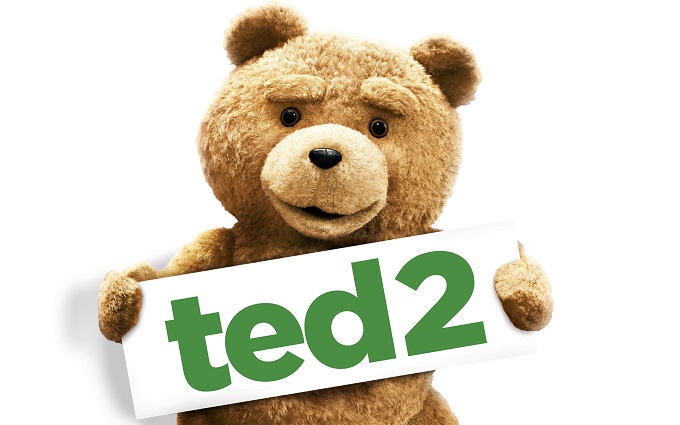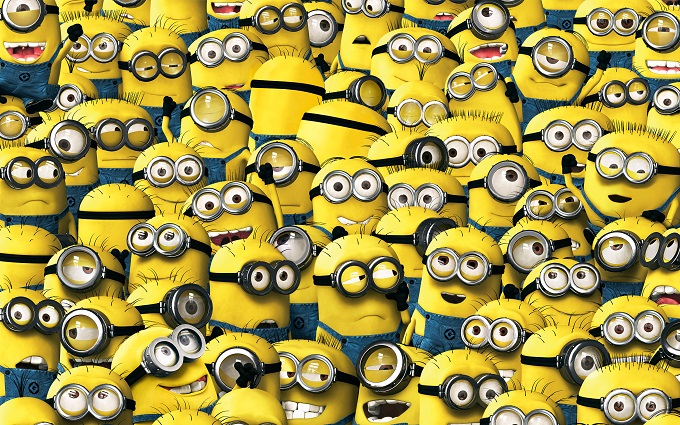Southpaw Review

The Plot
When a bitter feud with a fellow boxer threatens to destroy his family and career, fighter Billy Hope (Jake Gyllenhaal) seeks the help of trainer Tick Willis (Forest Whitaker) to turn his life around and bring him back on top.
The Good
Director Antoine Fuqua’s follow up to last years The Equalizer packs a much more emotional punch this time around with some incredible performances that are sure to bring a tear to your eyes. Adopting an occasional first person point of view in the boxing match final act is a nice touch that brings the fight right to the audience, almost making us feel every punch.
Considering his noticeably gaunt figure in last year’s Nightcrawler, leading man Gyllenhaal has shown an undeniable commitment to the role with his astonishingly quick bulking up. He certainly physically convinces as a viciously toned fighter fueled by barely restrained rage.
Meanwhile Forest Whitaker’s Tick Willis is a wonderful addition to the cast as Hope’s strong and silent trainer who helps bring him back to his glory days. Praise must also go to Oona Laurence and the amazingly truthful chemistry with her on screen father Gyllenhaal. For such a young actress, Laurence has proven that she has what it takes to go up against Gyllenhaal and even come out on top in certain scenes.
While for the most part it is very formulaic and hits all the expected notes, Southpaw does bring some genuine shocks and raw emotion which comes with themes of family, suffering and anger. Director Antoine Fuqua demonstrates yet again his usual flair for gritty realism. Rocky fans and boxing movie fans in general will certainly leave entertained and moved.
The Bad
Unfortunately if you’ve seen the trailer, nothing is surprising. While the story itself is formulaic enough, the promotional advertising has sadly given everything away and strips a lot of the emotion out of it. With a few smart tweaks the trailer could have easily avoided giving away certain crucial plot points to allow for more shocks. Ironically most of the films best emotional punches are robbed of any impact.
Compared to his Oscar worthy turn in Nightcrawler, Gyllenhaal’s performance, while undoubtedly incredible, feels almost a little too easy for him. This performance has already been surrounded by whispers of awards season glory, but should he finally take home that best actor statue next year, it’ll be for the wrong role.
The Ugly Truth
If you’ve not seen the incredibly spoiler filled trailer, Southpaw will work much better for you. If you have, it’ll still bring tears to your eyes and works perfectly fine. Brutal, emotional and uplifting, Southpaw is everything a boxing movie should be. It’s not quite Rocky but certainly do.
Ant-Man Review

The Plot
Armed with a super-suit with the astonishing ability to shrink in size but increase in strength, a well-meaning cat burglar Scott Lang must embrace his inner hero and help reclusive genius Dr. Hank Pym, plan and pull off a heist that will save the world.
The Good
Guardians Of The Galaxy already proved that Marvel is more than capable of making superb big screen adaptations of some of their lesser known heroes. The perfectly honed Marvel formula of balancing self-aware humour with clever writing and impressive visual effects never fails.
Despite making his comicbook debut over 50 years ago and being a key part of the original line-up for the Avengers, Ant-Man clearly doesn’t have the same instant fan recognition that Iron Man, the Hulk or Captain America do.
Paul Rudd is universally acknowledged as one of the most indisputably charming Hollywood leading men. Rudd’s endearing hangdog qualities are a perfect fit for Scott Lang, as a kind hearted and reluctant criminal turned hero. His knack for wry humour is certainly put to good use alongside his newly athletic physique. Marvel choose very wisely in selecting someone as naturally charismatic to make Lang instantly likeable and entertaining.
Michael Douglas also becomes the latest elder Hollywood icon to make his debut in the Marvel universe. Douglas is a near perfect fit for Hank Pym, giving the genius inventor some gravel voiced gravitas. He also lends some much needed credibility to potentially absurd super powers like talking to Ants and making yourself very tiny. It’s great to see Douglas finally taking his rightful place in a big fun effects driven film.
Evangeline Lilly is another valuable addition to the cast, playing Pym’s semi-estranged daughter Hope. Given the somewhat unfair recent criticism of how Marvel has handled its female heroes it’s certainly welcome to see a strong female character given equal prominence this time. Lilly is more than a match for Rudd in screen presence and her character may prove to be an even more significant addition to the Marvel universe…
Ant-Man is consistently funny and can thank Michael Pena for many of its most memorably hilarious moments. In a rare treat his presence as a comedic sidekick is scene stealing brilliance as opposed to the usual annoying distraction such characters tend to provide.
Ant-Man does an admirable job of making the power of shrinking seems more fantastic than farcical. Accomplished special effects combined with just the right amount of knowing humour manages to keep things both fun and spectacular. Edgar Wright and Joe Cornish were largely responsible for the script and it shows. Particular highlights include a dramatic action sequence taking place almost entirely in a young child’s bedroom. It’s entirely the spirit of playful whimsy that this hero needs.
The Bad
Ant-Man might not quite have the instant cool factor that heroes like Iron Man or the Mighty Thor have but Marvel does the very best it can to introduce the character in a way that makes him feel like a worthwhile addition to its ever expanding cinematic universe of superheroes. There’s little negative to say other than acknowledging that standing alongside the Avengers increasingly grand scale adventures, Ant-Man’s simple heist format might feel just a little small scale at times.
The Ugly Truth
Ant-Man proudly takes his places among Marvel’s amazing cinema universe in a light hearted big screen debut that proves that little heroes are capable of packing a big punch and big laughs. It’s another fun origin story that’s surprisingly well integrated into the wider Marvel world. It’s definitely the start of big things for a famously tiny hero.
Review by Russell Nelson
Ted 2 Review

The Plot
Seth MacFarlane and Mark Wahlberg are back as everyone’s favourite Thunder Buddies. With a recently married Ted (MacFarlane) and Tami-Lynn (Jessica Barth) looking to become parents, Ted finds he has to prove he’s a person in a court of law with the help of lawyer Samantha (Amanda Seyfried).
The Good
Surprisingly enough, for a comedy Ted 2 works best in the non-comedic moments. Instead of focusing on the relationship between Wahlberg’s Johnny and Mila Kunis’ Lori (more on which later) Ted 2 makes the titular character the main driving force of the story and wraps it in a courtroom drama amongst the tirade of jokes. While it is indeed ridiculous, there is an interesting message about equality that MacFarlane tries to put forward which, though it becomes mostly suffocated by the constant jokes.
That’s not to say the jokes are all miss and no hit. One particular highlight comes in true MacFarlane style with a dark and twisted scene at an improv show in which Ted and Johnny try to cheer themselves up by suggesting some outrageous scenarios for the poor performers. The rest of the hits come few and far apart…
The Bad
A lot of the jokes featured are at the expense of references to other, more respected and funnier films. Not so subtle nods are made towards films like Jurassic Park, Planes Trains and Automobiles, and The Breakfast Club, all of which are focused on for far too long to simply satisfy the audience.
Then there are the cameos. The two main ones (for UK audiences at least) being Jay Leno and Liam Neeson. Both of which feel cheap and struggle to bring many giggles. Neeson’s is the biggest offender, again trying to reference his current gruff voiced action hero stereotype but spending too long on it.
On the subject of the previously mentioned relationship between Johnny and Lori, Mila Kunis is very noticeably missing from the cast in this sequel. Her absence is explained away in a throwaway comment about the two having split up six months earlier. With reports that Kunis didn’t return due to both her pregnancy and MacFarlane’s desire to keep the focus away from Johnny and Lori’s relationship this time round, it’s understandable, yet still somewhat disappointing to see her written off in one sentence.
And while MacFarlane tries to keep the focus on Ted for this sequel, inevitably a familiar face returns, giving the final act a horrible feeling of ‘been there done that’.
The Ugly Truth
While the film’s main story and attempt at serious subtext is interesting and clearly trying to feel different from its predecessor, Ted 2 ultimately fails due to a high number of jokes falling flat. The film can’t avoid falling back on bad habits and being reliant on overlong cameos and clunky references to other films. The low-bro novelty value of MacFarlane’s foul mouthed teddy bear may already have worn off.
Terminator Genisys Review

The Plot
Arnold Schwarzenneger returns to the Terminator franchise as John Connor (Jason Clarke) sends Kyle Reese (Jai Courtney) back to 1985 to save his mother, Sarah Connor (Emilia Clarke). But when Reese arrives, it appears the past has been altered and Sarah Conner is not the vulnerable victim she is meant to be thanks to her guardian, the T100 (Schwarzenneger).
The Good
The fifth and latest installment in the Terminator franchise, now over 30 years old, is undoubtedly the biggest game changer yet. With the task of bringing back fan favourite Arnold Schwarzenneger to his role, writers Laeta Kalogridis and Patrick Lussier have found a suitable loophole in the form of alternate timelines It also gives them an opportunity to bring back Sarah Connor, this time in the form of Game of Thrones star Emilia Clarke. Clarke is a worthy successor to Linda Hamilton, playing one of the most iconic heroines of the sci-fi genre and almost instantly proving she has what it takes to be just as badass.
In a plot that spans over thirty years, Terminator Genisys feels like a celebration of the franchise as it begins to head towards an ending that can finally put the ongoing battle with Skynet to rest.
The Bad
The fundamental laws of time travel are mixed up so consistently that it becomes pointless to even try to fit this latest instalment in with the rest of the franchise. Even James Cameron’s original story is mercilessly slaughtered to make way for new adventures.
The X-Men franchise recently used the concept of alternate timelines to reboot itself entirely, likewise Planet of The Apes went back to a re-imagined origin story to recapture dominance of the big screen. Terminator Genisys takes the same drastic action, sacrificing decades worth of history with little respect for the original films beyond borrowing a few famous lines. Despite these occasional nods to fans, things soon turn sour as the new script mercilessly hammers its way through the iconic franchise in order to provide an excuse for further storytelling.
It’s hard to say much more in regards to the story without treading into spoiler territory but let’s just help/warn you by saying, wait during the credits.
While Emilia Clarke and Schwarzenneger deliver credibly strong performances for the most part, the other new faces are less impressive playing familiar characters. Jason Clarke’s John Connor is completely ruined beyond all compare in a twist that, had it not been already revealed in the trailer, could have been shocking. Meanwhile Jai Courtney continues to make audiences wonder exactly why studios seem so determined to consistently cast him in major franchises.
The Ugly Truth
Terminator: Genisys could have been final nail in the coffin for the franchise but just like Skynet, feels like it is an unrelenting force which can never truly be destroyed. This exhausting experimenting with time travel will likely just leave you with a pounding headache from the horde of unanswerable questions it poses. Long term fans of the franchise will be glad to see Arnold back, but sad to see the past films so shameless butchered to make room for his long delayed return.
Review by Johnny Ellis
Minions Review

The Plot
Everyone’s favourite yellow servants get their own origin story! Minions sees Stuart, Bob and Kevin recruited by super villain Scarlet Overkill (Sandra Bullock) in her plan to steal the crown jewels in 1960s London.
The Good
Ever since Despicable Me entered the hall of animation fame thanks to the popularity of master villain Gru’s minions, the loveable babbling workers have won the world over and were even rewarded with a bigger role in Despicable Me 2. Now though, while we wait for the third instalment, fans are treated to even more antics in a prequel that offers just as many laughs as their previous two cinematic outings.
From the second the Universal logo rolls across the screen with the theme tune dubbed over by the minions voices, to the worthwhile post credits sequence , Minions manages to maintain the same consistency in enjoyable slapstick humor that made the previous Despicable Me films such a treat.
After an opening sequence which has almost slightly been drained of its humour thanks to it’s use in the trailers, Stuart, Bob and Kevin move on to London with highlights including constant tea drinking (of course) and a guest role for Queen Elizabeth.
Minions often use the guiding hand of a narrator and some more intelligible human characters to move the plot along, in spite of the fact that the Minions are at best capable of charming child like gibberish. Though of course the real secret of the Minions near universal appeal is that their entertaining physical gestures and emotional expressions are actually capable of communicating so much to audiences of any age.
The Bad
Unfortunately, compared to Despicable Me, the storyline is not as entertaining as the minions themselves. This is mainly due to the fact Bullock’s villainess just isn’t as fun as Steve Carell’s Gru. Where Gru is a villain with a soft gooey fatherhood center, Scarlet is just plain mean and lacks any redeeming likability.The lack of Gru hurts Minions, eventually making it feel less like an enjoyable standalone movie and more like an extended minions short that is just filling up the time waiting for Despicable Me 3.
The film is arguably at its best during the opening sequence showing the evolution of the minion and their need of a despicable master to serve in order to survive.Narrated by the soothing tones of Geoffrey Rush it demonstrates just effective the Minions slapstick antics can be when combined with inventive writing and clever visual gags. As the film ambitiously tries to stretch things into feature length proportions it inevitably relies more on the generic human characters surrounding the minions and loses the concise charm of the Minions short film. In truth the Minions truly work best either as background comedy relief or on their own in smaller doses.
The Ugly Truth
While it is consistently funny with some genuine highlights in it’s main 1960’s London storyline, Minions feels somewhat like a way for the profitable franchise to tread water while the studio continues working on the eagerly anticipated follow up to the sublime Despicable Me 2. Though of course, more Minions mayhem is always welcome…
Review by Johnny Ellis